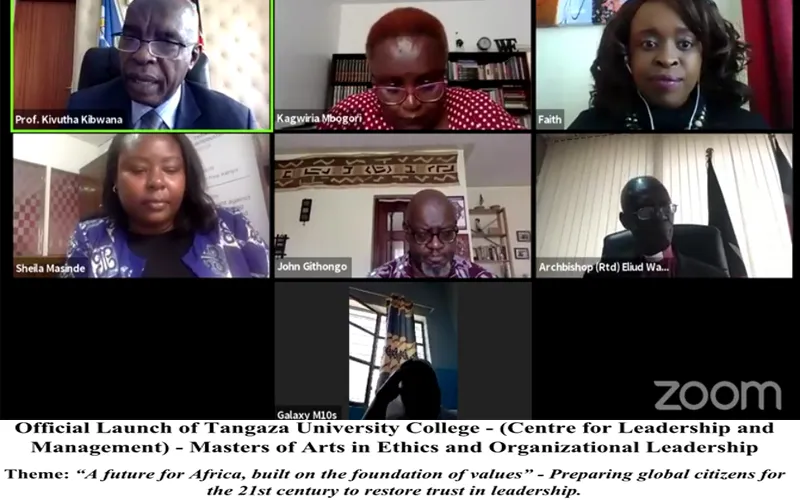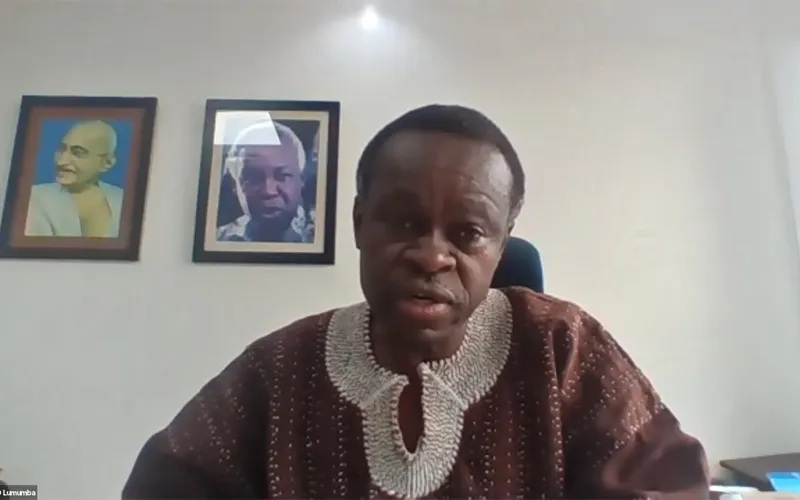Courses for the ethics and organizational leadership postgraduate program have been “designed to prepare global citizens with a sense of moral obligation based on high ethical standards, personalized through critique and commitment,” the postgraduate program’s concept note indicates.
According to the leader of the MA program, Fr. Prof. Apollinaire Chishugi, the postgraduate initiative was preceded by, among other things, six surveys, five of which were carried out by CLM leadership, which revealed that there is an “overwhelming need” to introduce ethics in the Centre’s curriculum of studies “especially at a Masters level.”

“Whatever knowledge of ethics is currently being imparted is at a purely theological level and does not aim to (impart) attitudes and habits or actions that will translate in action in the workplace,” Fr. Chishugi, a member of the Missionaries of Africa (M.Afr) said during the April 9 launch of the postgraduate program.
The Congolese-born Professor of Political Philosophy observed, “Most graduates do not study ethics during their universities unless philosophy is offered as part of the university curriculum.”
(Story continues below)
It’s in light of these revelations that the leadership of TUC, a culturally diverse institution with students and faculty from over 40 countries, decided to introduce the postgraduate program, which will “allow a new generation of leaders to promote ethical leadership and value,” Prof Appolinaire, who was, on the very day of the launch, appointed TUC’s Deputy Vice Chancellor for Research and Extension added.
Those to graduate from the program that was launched under the theme, “A future for Africa, built on the foundation of values: Preparing global citizens for the 21st century to restore trust in leadership,” will be expected to implement zero-tolerance policies for ethical violations and influence productivity, the concept note shared with ACI Africa on the eve of the launch indicates.
Speaking on behalf of the pioneer students of the MA program, Beatrice Mugure Shikali said that in their ongoing coursework, the postgraduate students “have learnt, through case studies, sometimes painfully so, the far-reaching consequences of every decision that a leader makes.”

“We are better leaders than we were when we came in,” Beatrice further said.
She added, “We have been challenged to reflect on ourselves as leaders, our perspectives, our biases, our blind spots, how our mind works, who we really are, and what our value and belief systems are, so that when we face ethical quandaries and leadership challenges, we will be anchored on solid moral ground.”
According to TUC’s Vice-Chancellor Designate, Prof. David Wang’ombe, the launch of the postgraduate program is a testament of the institution’s commitment to the “transformation of the society and its endeavor to prepare graduates to engage in an intelligent manner but also lead others in the society.”
“It's in keeping with Tangaza University’s motto of Teaching Minds, Touching Hearts, and Transforming Lives that the MA in Ethics and Organizational Leadership is designed to enable students study how to understand ethical issues, confront them when they become challenging in their everyday work lives,” Prof. Wang’ombe who is TUC’s first lay Vice Chancellor said.

During the April 9 virtual event, various panelists offered personal accounts of how they have handled ethical dilemmas in their respective lives. These panelists offered to support the postgraduate program by being resource persons for the students who enroll in the program.
Some of the panelists included the Governor of Kenya’s Makueni County, Prof. Kivutha Kibwana; the Chairman of Kenya’s Ethics and Anti-Corruption Commission (EACC), Archbishop Eliud Wabukala; the Executive Director of Transparency International Kenya, Sheila Masinde.
Others include the anti-corruption activist and CEO of Inuka Kenya Trust, John Githongo, and the former Chairperson of the Kenya National Commission on Human Rights (KNCHR), Kagwiria Mbogori.












